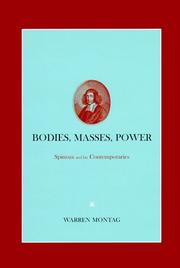| Listing 1 - 10 of 63 | << page >> |
Sort by
|
Book
Year: 1895 Publisher: Haga Comitum : Nijhoff,
Abstract | Keywords | Export | Availability | Bookmark
 Loading...
Loading...Choose an application
- Reference Manager
- EndNote
- RefWorks (Direct export to RefWorks)
Book
ISBN: 9026316550 Year: 2000 Publisher: Amsterdam Ambo
Abstract | Keywords | Export | Availability | Bookmark
 Loading...
Loading...Choose an application
- Reference Manager
- EndNote
- RefWorks (Direct export to RefWorks)
Book
ISBN: 900438359X 9004359559 Year: 2018 Publisher: Leiden ; Boston : Brill,
Abstract | Keywords | Export | Availability | Bookmark
 Loading...
Loading...Choose an application
- Reference Manager
- EndNote
- RefWorks (Direct export to RefWorks)
This book is an attempt to assess the part played by philosophy in the eighteenth-century Dutch Enlightenment. Following Bayle’s death and the demise of the radical Enlightenment, Dutch philosophers soon embraced Newtonianism and by the second half of the century Wolffianism also started to spread among Dutch academics. Once the Republic started to crumble, Dutch enlightened discourse took a political turn, but with the exception of Frans Hemsterhuis, who chose to ignore the political crisis, it failed to produce original philosophers. By the end of the century, the majority of Dutch philosophers typically refused to embrace Kant’s transcendental project as well as his cosmopolitanism. Instead, early nineteenth-century Dutch professors of philosophy preferred to cultivate their joint admiration for the Ancients.
Book
Abstract | Keywords | Export | Availability | Bookmark
 Loading...
Loading...Choose an application
- Reference Manager
- EndNote
- RefWorks (Direct export to RefWorks)
Book
ISBN: 9789004614222 Year: 1989 Publisher: Boston : BRILL,
Abstract | Keywords | Export | Availability | Bookmark
 Loading...
Loading...Choose an application
- Reference Manager
- EndNote
- RefWorks (Direct export to RefWorks)
This book explores the influence and representation of Cartesian philosophy in the Netherlands, focusing on the 17th century. The author, C. Louise Thijssen-Schoute, investigates the cultural exchange between Dutch and French literature, emphasizing the mutual influence rather than national culture alone. The work is ambitious, examining the theological, medical, mathematical, and literary branches of Cartesianism in the Netherlands. It highlights the contributions of Dutch translators and philosophers, including Geulincx and Spinoza, while also addressing the challenges of conducting research without institutional support. The book serves as a comprehensive study of the historical and philosophical impact of Cartesian thought in Dutch culture.
Book
Year: 1959 Publisher: Amsterdam, : Elsevier,
Abstract | Keywords | Export | Availability | Bookmark
 Loading...
Loading...Choose an application
- Reference Manager
- EndNote
- RefWorks (Direct export to RefWorks)
Philosophy --- Philosophy, Dutch. --- History
Book
Year: 1967 Publisher: 's-Gravenhage : Martinus Nijhoff,
Abstract | Keywords | Export | Availability | Bookmark
 Loading...
Loading...Choose an application
- Reference Manager
- EndNote
- RefWorks (Direct export to RefWorks)

ISBN: 1859847013 Year: 1999 Publisher: London : Verso,
Abstract | Keywords | Export | Availability | Bookmark
 Loading...
Loading...Choose an application
- Reference Manager
- EndNote
- RefWorks (Direct export to RefWorks)
Book
Year: 1957 Volume: nr. 2, 8, 10, 15 Publisher: Zwolle : Tjeenk Willink,
Abstract | Keywords | Export | Availability | Bookmark
 Loading...
Loading...Choose an application
- Reference Manager
- EndNote
- RefWorks (Direct export to RefWorks)
Book
Year: 1954 Publisher: Paris,New York : Elsevier Pub. Co.,
Abstract | Keywords | Export | Availability | Bookmark
 Loading...
Loading...Choose an application
- Reference Manager
- EndNote
- RefWorks (Direct export to RefWorks)
| Listing 1 - 10 of 63 | << page >> |
Sort by
|

 Search
Search Feedback
Feedback About UniCat
About UniCat  Help
Help News
News